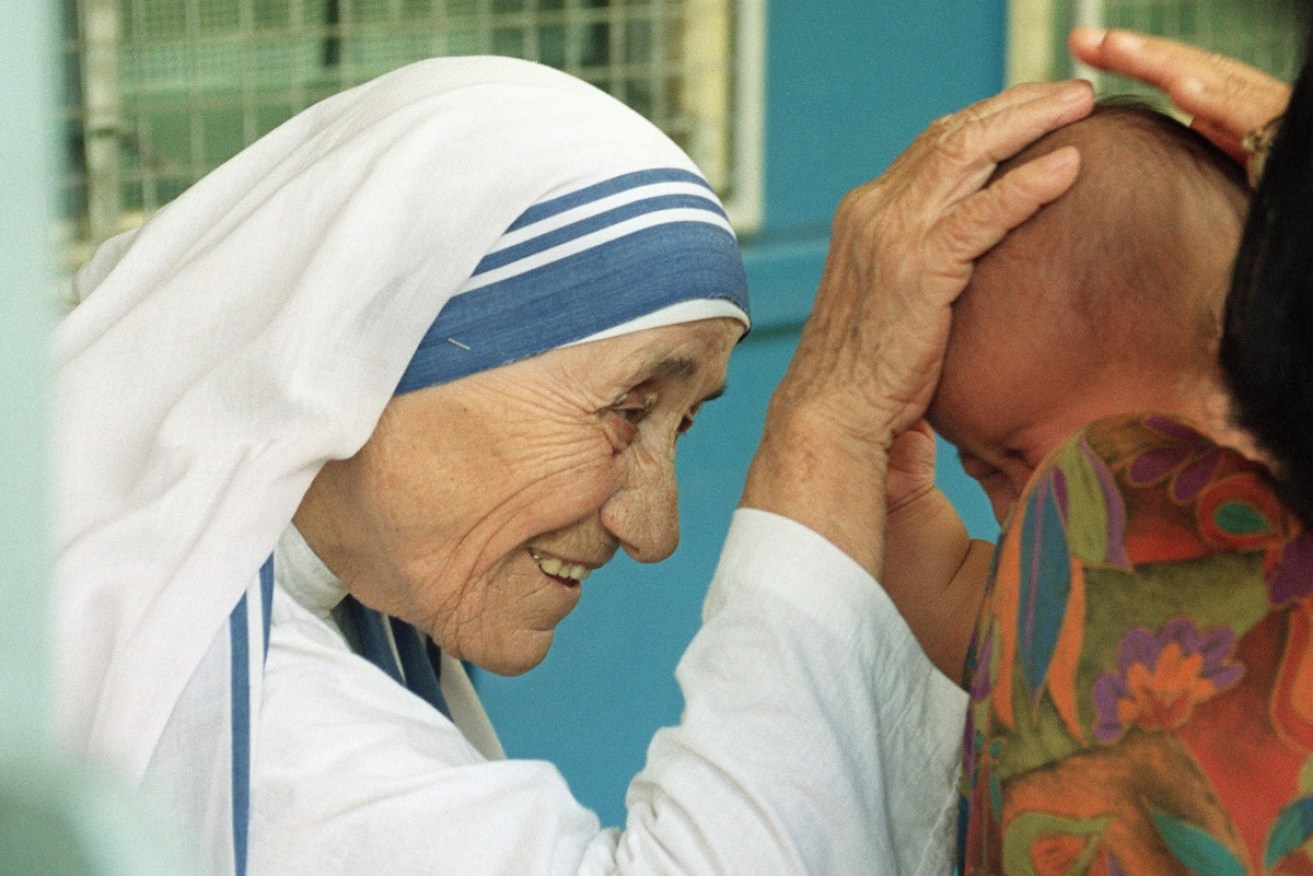Mother Teresa: Do miracles have a place in the modern–day Catholic Church?

Mother Teresa: the 'miracles' attributed to her are being questioned. Photo: Getty Photo: Getty
As Catholics around the world celebrate the canonisation of their newest saint Mother Teresa, debate is raging over whether miracles have a place in the modern-day Church.
The path to sainthood in the Catholic Church is usually a long one.
Among the prerequisites is proof of two miracles approved by the Vatican’s own investigators.
In the case of Mother Teresa, both involved curing cancer.
For the first, Indian woman Monica Bersa said a cancerous tumour in her abdomen had been cured in 1998 after a beam of light had emanated from a picture of Mother Teresa contained in a locket. The miracle was recognised by the Church in 2002.
The second, recognised in 2015, involved the 2008 healing of a Brazilian man with multiple brain tumours.
Australia’s own Saint Mary McKillop also had two miracles attributed to her involving two more cured cancer patients.
But the so-called saint-making machine came under fire last year, when two exposes revealed sainthoods could cost the Vatican up to $735,000 each, forcing the Pope to impose transparency measures.
There has also been debate about whether miracles have a place in the modern-day Church.
Former Catholic priest turned church historian and theologian Paul Collins said he had a “sheepish embarrassment” about miracles.

Paul Collins is ‘sheepish’ about miracles. Photo: supplied (Paul Collins)
“My problem is I don’t believe in a God who constantly intervenes in the business of nature to suspend nature,” he said.
“I don’t believe that God is constantly intervening in life. I think God’s interaction with us is much more subtle, much deeper.”
He said most “miracles” were often claimed where there was no scientific or medical explanation for an event.
“The argument is: science can’t explain it,” he said.
“There are a few things still in life that science doesn’t explain, and we don’t necessarily call them miracles.
“I suppose most progressive Catholics in Australia would feel that way. But … we live in a post-enlightenment society. We live in a scientific society.
“But the Catholic Church is a universal church … and many, many Catholics do not live in that kind of a society.
“People in … less-developed societies … they are far more ready to accept miracles.”

Indian Christians and nuns gather to pay their respects as Pope Francis proclaims Mother Teresa a saint. Photo: Diptendu Dutta/AFP/Getty
Mr Collins said the Vatican office that investigated miracles had been set up in the mid-18th century and currently sat in a building behind the Holy See’s press office.
“It goes through a historical process of looking at the person, looking at their work, their beliefs, their lives, their morality, how they behaved and it teases all of that out in what is really a quite tedious process,” he said.
“In the end, it makes a decision as to whether this person can be put forward as a model of Christian life.
“But, of course, as a number of people have pointed out … this is a political process.
“John Paul II wanted a certain type of Christian, so the people he proposed were the ones who fulfilled that.”
Mr Collins said the church was moving away from the emphasis on miracles under Pope Francis.
“I think Francesco, he perhaps believes it, but it’s at the side of his agenda,” he said.
Let us carry Mother Teresa’s smile in our hearts and give it to those whom we meet along our journey. pic.twitter.com/YNGkhd9Z6m
— Pope Francis (@Pontifex) September 4, 2016
“What Pope Francis is trying to do is to re-emphasise mercy, of reaching out to other people, or caring for others, of serving their needs.
“He’s kind of taken Mother Teresa and her canonisation as a happy accident to be able to illustrate that.”
Mr Collins said Mother Teresa did not need to perform miracles to make her a saint.
“I think Mother Teresa’s miracle is her life. You don’t need any spectacular suspensions of nature,” he said.
“This is a woman who left a teaching career behind … she saw the state of the poor, she decided to do something about it.
“The test of her is in the work that she’s done. I think that’s where the miracle is.”








